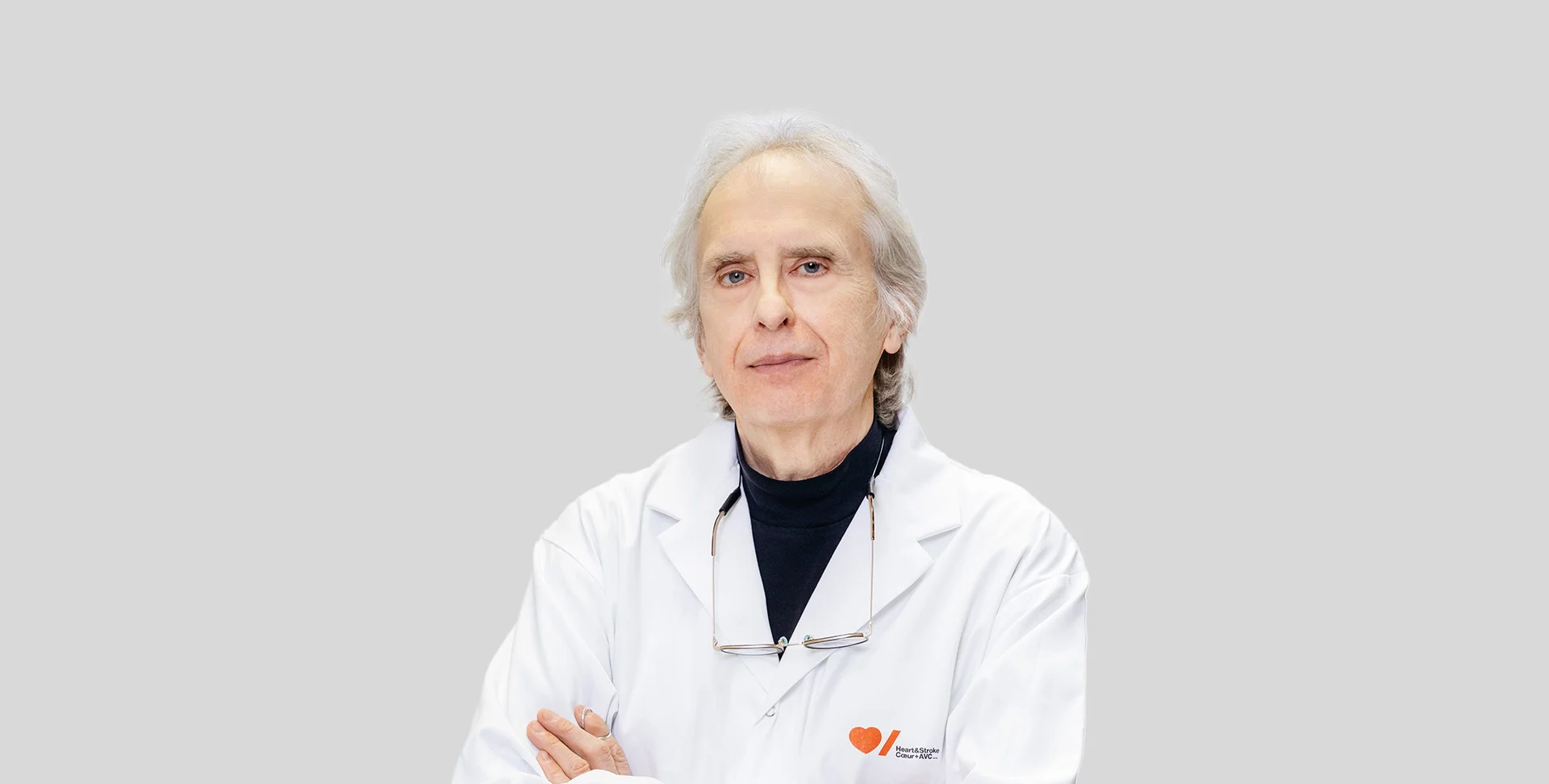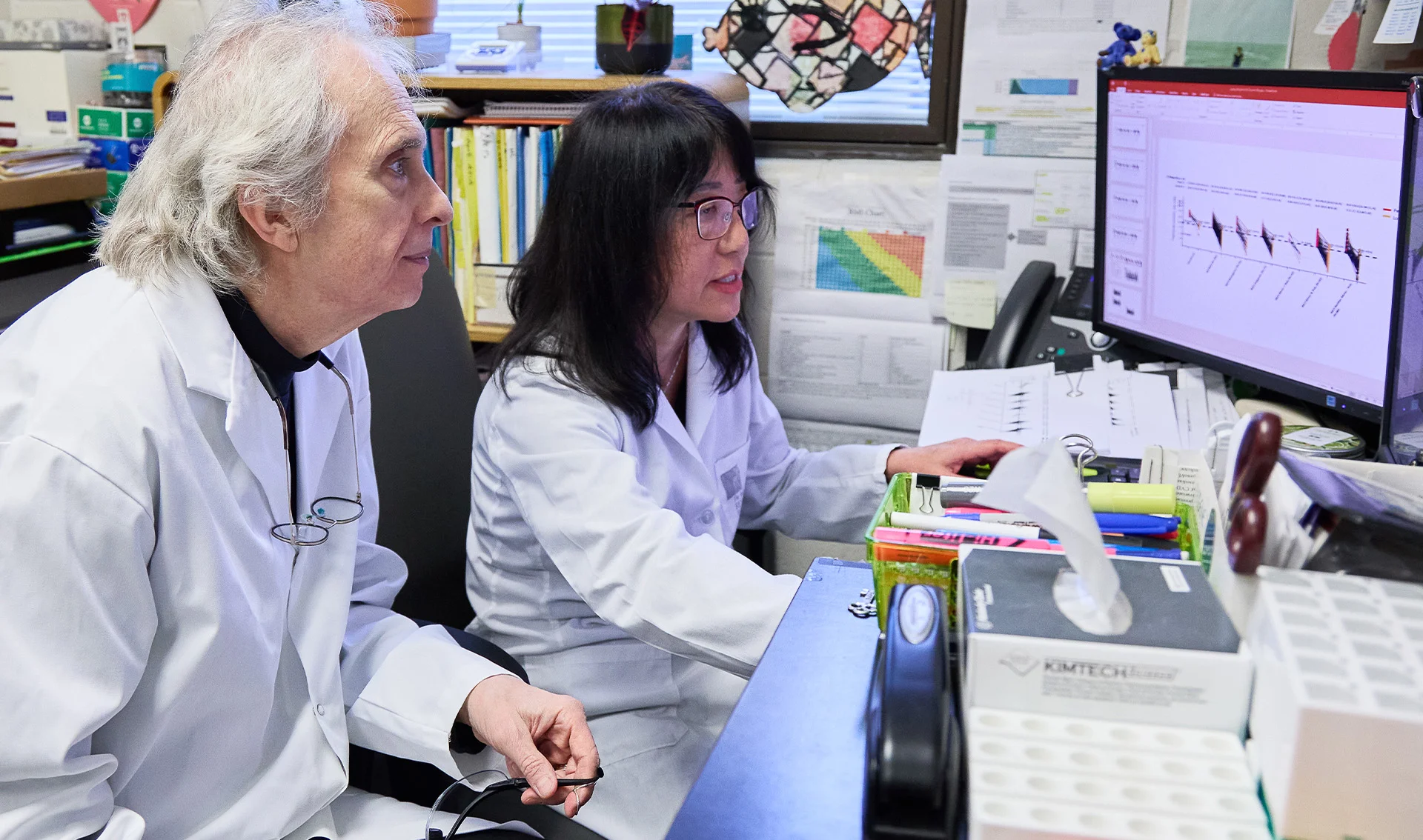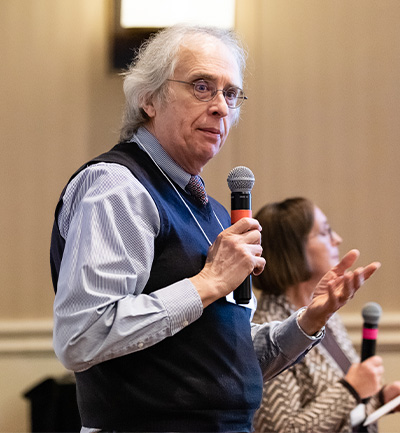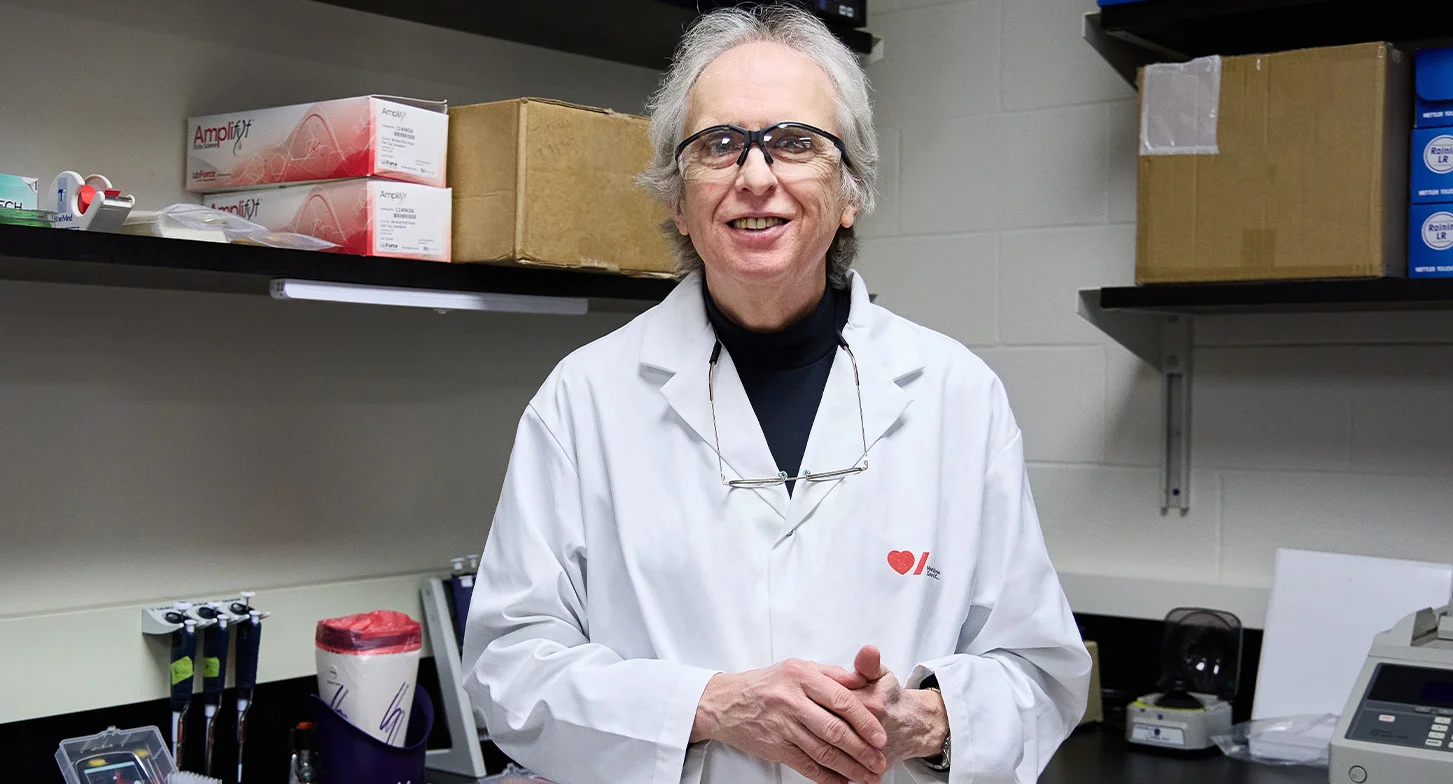
Unlocking genetic codes to prevent heart attacks
Dr. Robert Hegele’s research adds years to lives that may have once been cut short
Chapter 1 A risky inheritance
Dr. Rob Hegele’s father almost died from a heart attack at 49. His mother had a heart attack at 60. Both recovered, thanks to bypass surgery and medication to control their high cholesterol.
Dr. Hegele knows his family was lucky. For many others who share a history of high cholesterol, those stories ended tragically, with lives lost too soon, and children growing up without a parent.
It’s no coincidence that Dr. Hegele, a professor of medicine at Western University, has become an internationally renowned expert on inherited high cholesterol. This research focus is driven by his personal experience and by his commitment to the hundreds of people with this condition who come to his clinic in London, Ont.
more at risk for heart attack or stroke if you have this gene.
Through research funded by Heart & Stroke donors, he has identified several different mutations of a single gene that triggers high cholesterol in roughly one in 250 people in Canada, increasing their risk of heart attack or stroke as much as 20 times.
His lab developed a DNA test to diagnose this condition, called familial hypercholesterolemia and contributed to evaluating new medications to treat it. The test is now used around the world, and in 2024, Ontario will become the first province to cover it under provincial health insurance.
Now Dr. Hegele is on the trail of a more complex adversary that likely affects many more people: high cholesterol triggered by multiple genes, or polygenic hypercholesterolemia.
Chapter 2 The problem with cholesterol
Cholesterol is a type of fat that serves key functions in the body; it’s a building block of cells and hormones, and a neurotransmitter in the brain.
But when too much circulates in the blood (especially the form of LDL — low-density lipoprotein or “bad” cholesterol), “it can start sticking to the inside of the plumbing,” Dr. Hegele says. Waxy plaques can build up in arteries that supply the heart and brain, blocking blood flow and causing heart attacks and strokes.

Dr. Hegele’s team is analyzing massive amounts of genomic data to find patterns that cause heart disease and stroke. They’ve made some key discoveries thanks to support from Heart & Stroke donors.
As most people know, an unhealthy diet can increase your cholesterol. But what you eat accounts for only 10-15% of high cholesterol, Dr. Hegele says. “The rest is what you’re genetically programmed to make.”
Dr. Hegele brought genetic tools to the problem, analyzing his patients’ DNA. “When I started, this was quite wild, to have somebody working in adult cardiovascular prevention, then at the same time running a genomics lab and doing genotyping.” Since then, the mainstream has caught up, with an explosion of genetic information shedding light on many diseases.
Chapter 3 Personalized treatments
Analyzing the single gene responsible for familial hypercholesterolemia was relatively simple compared to the challenge of searching out multiple genetic misprints that combine to cause the polygenic type.

Dr. Robert Hegele is an internationally renowned expert on inherited high cholesterol.

“If you were to look at it by eye, it would be like trying to find a pebble on the surface of the moon.” Dr. Hegele says.

DNA test developed by Dr. Hegele’s team is now used globally to diagnose inherited high cholesterol.
To tackle this, Dr. Hegele’s team uses high-powered computers to sift through massive amounts of genomic data, looking for recurrent patterns in chromosome regions associated with heart disease and stroke. “If you were to look at it by eye, it would be like trying to find a pebble on the surface of the moon.”
So far, he says, “We’re finding that it's going to be very individual, and everybody has their own unique genetic ‘barcode.’” The goal is detailed profiling that will allow him and other specialists to gauge their patients’ risk with precision and develop personalized treatments.
Dr. Hegele is taking a similar approach to study triglycerides, a different kind of fat that circulates in the blood. “The story of how triglycerides damage the arteries is more complicated, and we need to accumulate evidence,” he says. “For really high triglyceride levels, we don't have good treatments right now.”
The payoff for all this research is preventing or delaying heart attacks and strokes, literally adding decades to people’s lives. He sees this daily in the patients he treats — people who, in past generations, might have had a heart attack at 34 and not lived beyond 40. “But now they're in their 70s and they keep coming back every year to the clinic, showing me pictures of their grandkids.”
A key to Dr. Hegele’s research achievements has been uninterrupted funding from Heart & Stroke donors since his first grant in 1991. “It was actually Heart & Stroke that had the confidence in me initially to fund my research from the outset,” he says. “I am forever grateful for that. I would be doing something totally different if I didn't have this support from the volunteers and the donors.”
Learn more about

Real stories

A new heart at 14
Until the day of his heart transplant, Olivier had never known life with a healthy heart

Man on a mission
After a cardiac arrest, actor and singer Robert Marien is using his voice to save others.

Extending heart health for aging
Dr. Susan Howlett targets frailty to help you live healthier, longer. Especially women.
